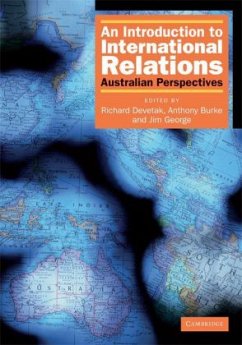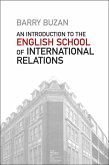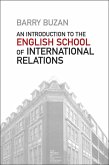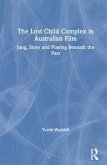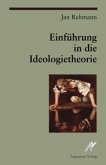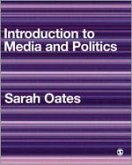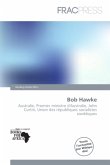Leading Australian scholars introduce a range of theories, actors, issues, institutions and processes that animate international relations today.
Introduction to International Relations: Australian Perspectives provides comprehensive coverage of its subject while capturing distinctively Australian perspectives and concerns. Designed for undergraduate students this textbook brings together leading Australian scholars to present lively introductory analyses of the theories, actors, issues, institutions and processes that animate international relations today. Introduction to International Relations: Australian Perspectives introduces students to the main theoretical perspectives before covering an extensive range of topics with historical, practical and normative dimensions.
Table of contents:
Preface and acknowledgements; List of contributors; Introduction to international relations: the origins and changing agendas of a discipline Richard Devetak; 1. Theory and practice in Australian International Relations: the search for identity and security Jim George; Part I. Theories of International Relations: 2. International relations theory in an era of critical diversity Jim George; 3. Liberalism Jim Richardson; 4. Realism Martin Griffiths and Terry O’Callaghan; 5. Marxism Scott Burchill; 6. Feminism Katrina Lee-Koo; 7. Postmodernism Roland Bleiker; 8. Constructivism and critical theory Martin Weber; 9. Global justice and cosmopolitan democracy Richard Shapcott; Part II. The Traditional Agenda: States, War and Law: 10. The modern state and its origins Richard Devetak; 11. Nationalism and war Gavin Mount; 12. Security Anthony Burke; 13. Arms control Marianne Hanson; 14. The changing character of warfare Robert Ayson; 15. The ethics and laws of war Alex J. Bellamy; 16. International law Shirley Scott; 17. International society and European expansion Paul Keal; 18. Order and decolonisation in Southeast Asia Anthony Burke; 19. The Cold War Nick Bisley; Part III. The New Agenda: Globalisation and Global Governance: 20. Multilateral economic institutions Marc Williams; 21. Global trade Maryanne Kelton; 22. Global finance Len Seabrooke; 23. Non-state actors: multinational corporations and international non-governmental organisations James Goodman; 24. Global poverty and inequality Heloise Weber and Mark T. Berger; 25. Globalisation and its critics Steven Slaughter; 26. The globalisation of Islam Shahram Akbarzadeh; 27. Global terrorism David Wright-Neville; 28. Humanitarianism and armed intervention Jacinta O’Hagan; 29. Human rights Anthony Langlois; 30. Migration and refugees Sara E. Davies; 31. Global environmental politics Robyn Eckersley; 32. Global governance and the United Nations Samuel M. Makinda; Glossary of terms; Bibliography; Index.
Introduction to International Relations: Australian Perspectives provides comprehensive coverage of its subject while capturing distinctively Australian perspectives and concerns. Designed for undergraduate students this textbook brings together leading Australian scholars to present lively introductory analyses of the theories, actors, issues, institutions and processes that animate international relations today. Introduction to International Relations: Australian Perspectives introduces students to the main theoretical perspectives before covering an extensive range of topics with historical, practical and normative dimensions.
Table of contents:
Preface and acknowledgements; List of contributors; Introduction to international relations: the origins and changing agendas of a discipline Richard Devetak; 1. Theory and practice in Australian International Relations: the search for identity and security Jim George; Part I. Theories of International Relations: 2. International relations theory in an era of critical diversity Jim George; 3. Liberalism Jim Richardson; 4. Realism Martin Griffiths and Terry O’Callaghan; 5. Marxism Scott Burchill; 6. Feminism Katrina Lee-Koo; 7. Postmodernism Roland Bleiker; 8. Constructivism and critical theory Martin Weber; 9. Global justice and cosmopolitan democracy Richard Shapcott; Part II. The Traditional Agenda: States, War and Law: 10. The modern state and its origins Richard Devetak; 11. Nationalism and war Gavin Mount; 12. Security Anthony Burke; 13. Arms control Marianne Hanson; 14. The changing character of warfare Robert Ayson; 15. The ethics and laws of war Alex J. Bellamy; 16. International law Shirley Scott; 17. International society and European expansion Paul Keal; 18. Order and decolonisation in Southeast Asia Anthony Burke; 19. The Cold War Nick Bisley; Part III. The New Agenda: Globalisation and Global Governance: 20. Multilateral economic institutions Marc Williams; 21. Global trade Maryanne Kelton; 22. Global finance Len Seabrooke; 23. Non-state actors: multinational corporations and international non-governmental organisations James Goodman; 24. Global poverty and inequality Heloise Weber and Mark T. Berger; 25. Globalisation and its critics Steven Slaughter; 26. The globalisation of Islam Shahram Akbarzadeh; 27. Global terrorism David Wright-Neville; 28. Humanitarianism and armed intervention Jacinta O’Hagan; 29. Human rights Anthony Langlois; 30. Migration and refugees Sara E. Davies; 31. Global environmental politics Robyn Eckersley; 32. Global governance and the United Nations Samuel M. Makinda; Glossary of terms; Bibliography; Index.

